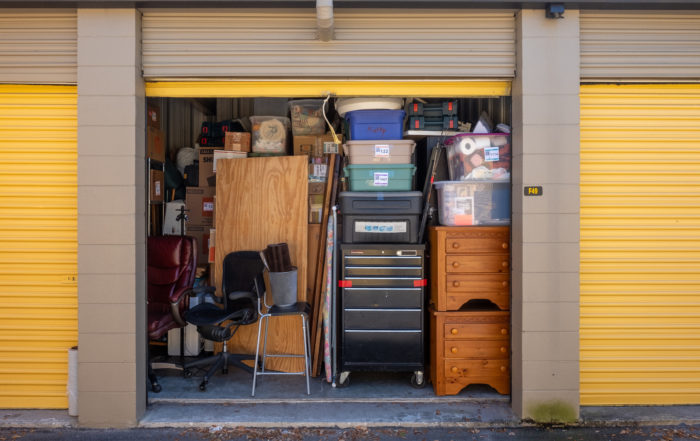How To Prep Your Boat for Storage

It’s nearly time to put your boat into storage, sadly. If you’ve never stored your boat before, now is the perfect time to learn! Or if you’re looking to do it by yourself for the first time, we’ve got you covered.
Before you store it, there are a few things you need to know, specifically about the boat’s hull or engine.
Your Boat’s Hull Needs To Be Prepped
Chances are, your hull will be made out of fiberglass. Fiberglass, though great on the water, it’s terribly durable on land. It is prone to splits or cracks, which can cause leaks. Before you store your boat, you should follow this list.
- Look for stress cracks and blisters in the fiberglass gelcoat.
If you find any, you should get those sealed before putting the cover on your boat. If you can’t get them sealed right then and there, mark where the cracks are with chalk, tape, or a list to keep track of everything before you put it back into the water.
- Clean Off and Wax The Hull
Invasive species and other underwater creatures like to attach to hulls. You should scrap off any barnacles or residue before storing it. You can also pressure wash the hull.
After cleaning it, apply new wax to the hull. You can create a layer of wax using a product like 3M’s Marine Ultra Performance Paste, to make this job easier next year.
- Cover Your Boat
You should never leave your boat fully exposed to the elements. To cover your boat, find a polytarp or polyvinyl cover. You might look for one to fit your exact model, which will ensure hull integrity and prevent mildew. This is usually better than a standard cover that doesn’t perfectly fit
If you’re storing outside, you can make your own frame to keep snow from accumulating on the tarp and causing damage. Be sure the cover is securely tied to make sure it doesn’t blow off or tear
Do not wrap your boat in plastic as this type of cover is more prone to mold and mildew.
Prepare Your Boat’s Engine
Corrosion, fuel degradation and freezing are the biggest causes of off-season engine damage. If you’re storing your boat in a non-climate controlled area, then you’re going to need to prepare your engine for the weather.
You should do all of the following:
- Check wires, hoses, and connections in the engine to ensure there are no problems that may be exacerbated by months of disuse
- Run the engine to warm it up, then change the oil and oil filter
- Flush the engine with fresh water while idling the engine, until the water coming out is clean. This ensures that it won’t overheat
- Store the engine in a vertical position to make sure the water drains completely. If you have an inboard or sterndrive engine, refill it with antifreeze
- Turn the engine on again, and spray fogging oil (if you’re winterizing a fuel-injected engine, use two-cycle oil) into the carburetor. While the engine is still running, shut off fuel supply using the fuel valve
- When it stops, pull the spark plugs, use some fogging oil on the cylinders, crank the engine a few times and reinstall the plugs
If you’re not planning on storing your engine for long, you can protect it with fogging oil. Use fogging oil to help keep the boat’s engine well protected during those winter months. While the engine is running, spray the fogging oil into the air intakes.
Do an Oil Change
You should change the engine’s oil as well as the oil filters on the stern drive, inboard engines, and outboards. Be sure to change the oil when the engine is slightly warm. Also make sure to get the appropriate oil for your boat. By changing the oil, it engine corrosion.
Remove the Drive Belt
When under tension for prolonged periods of time, the belt can weaken and crack. It’s best to completely remove it before storing your boat.
Disconnect the Battery
Don’t let your battery die during the winter! Disconnect it and top it off with distilled water. You can also run the battery a few times during the winter to make sure that it’s good to go when summer comes back around.
Lubricate!
Take some time to lubricate the steering system and any mechanisms. This can help protect your boat during the storage and cold weather. Even small pieces can have critical functions, so check over your boat and lubricate!
And finally…
Find A Good Place to Store Your Boat
Now that we’ve talked about tips for getting your boat storage ready, you just need a place to store it. If you’re looking to store your boat this winter contact Albuquerque Self Storage! We have indoor units as well as outdoor storage options for you.
Recent Posts
Understanding Self-Storage Lease Terms: What to Know Before You Sign
Renting a self-storage unit is often one of those tasks that feels simple at first—pick a unit, sign a lease, move your stuff in. But if you’re like most people, the fine print on that [...]
What Not to Do When Using a Self-Storage Unit: 9 Common Mistakes to Avoid
Self-storage units are a convenient and affordable way to store everything from furniture and keepsakes to business inventory and seasonal gear. Whether you’re moving, downsizing, or just trying to declutter your space, renting a storage [...]
How to Keep a Storage Unit Clean and Tidy
A self-storage unit can be a lifesaver when you need extra space, but without proper organization and upkeep, it can quickly become cluttered. A clean and tidy storage unit not only makes it easier to [...]



